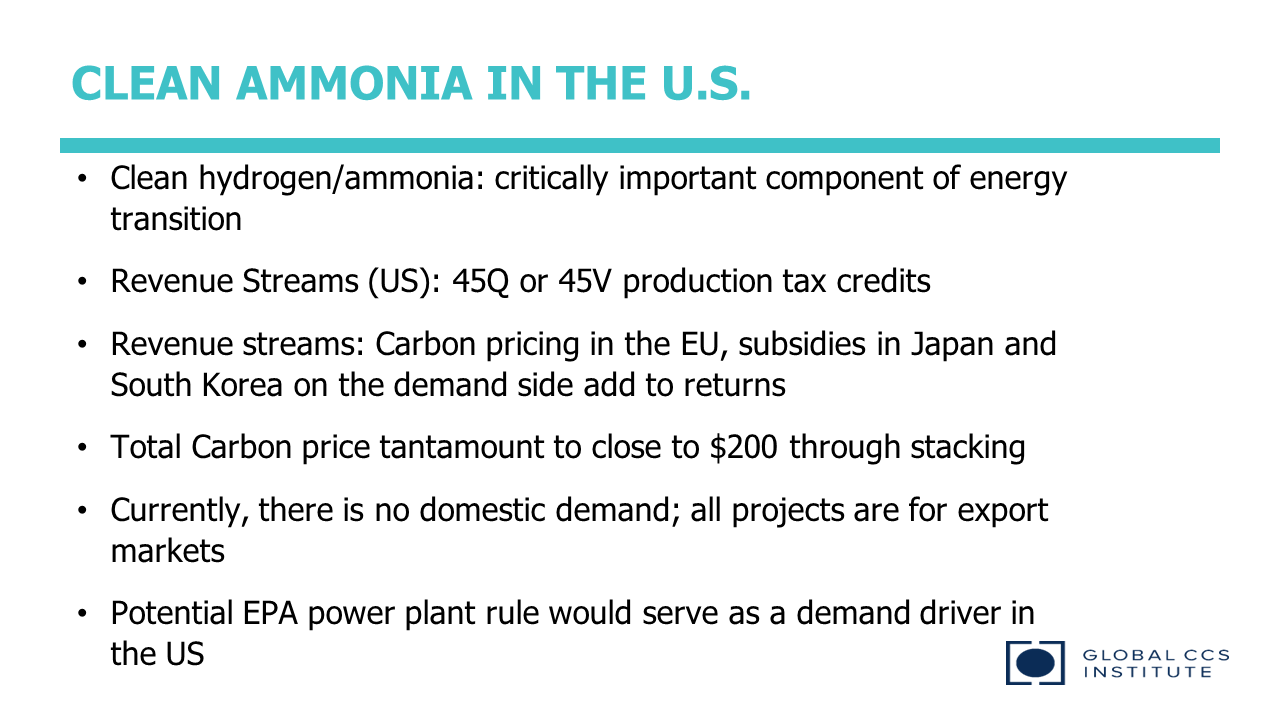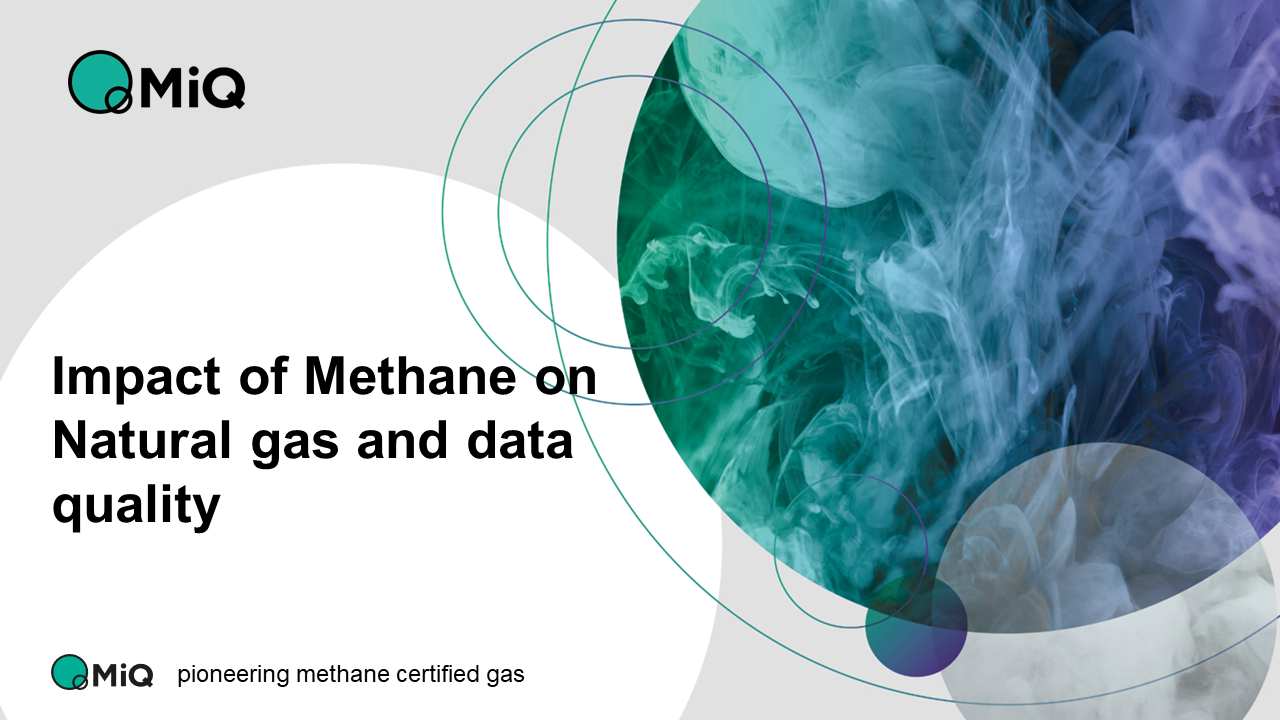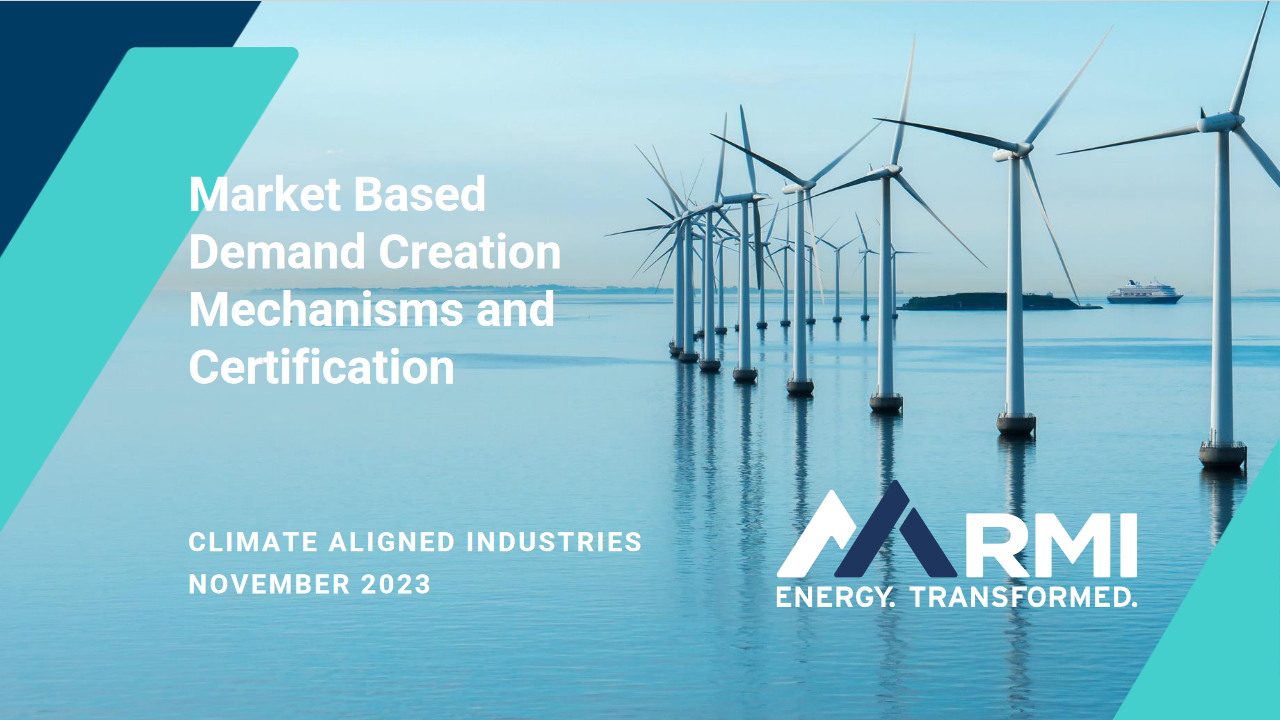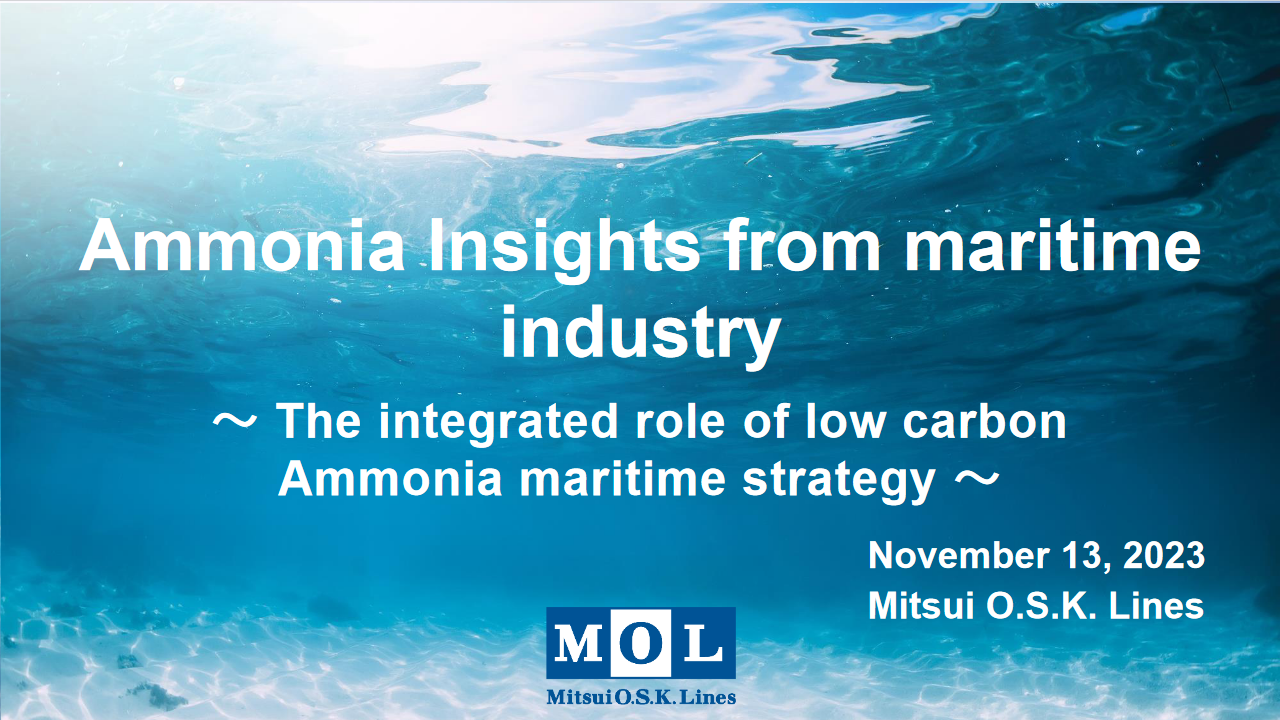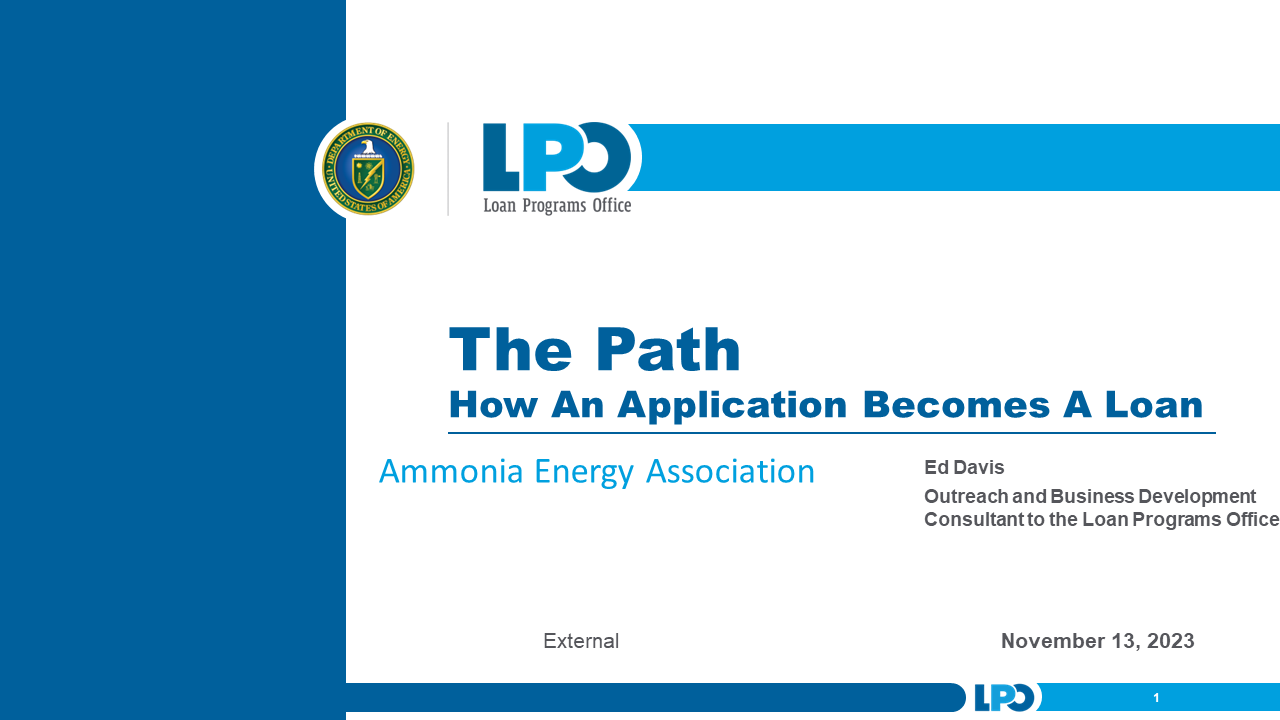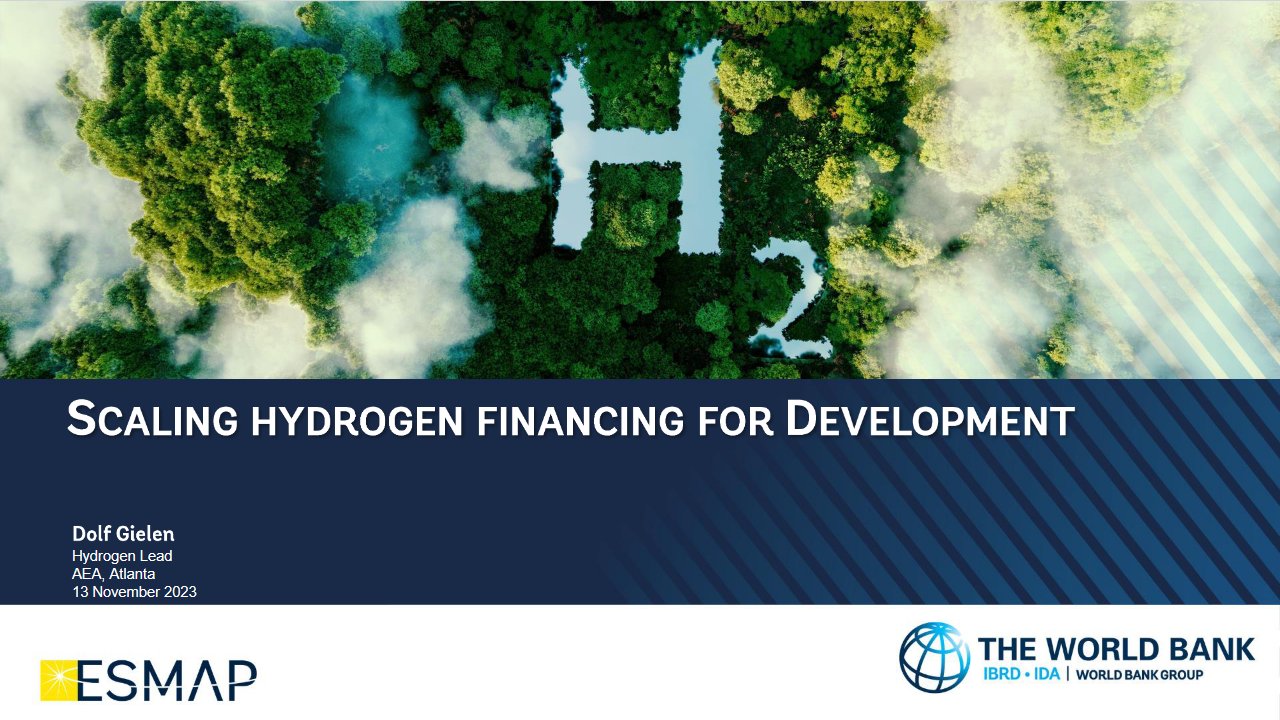Presentations
Presentation
Global Ammonia Certification As Enabler for Accelerated Investment and Financing
Ammonia can be a key clean hydrogen carrier for the coming decades. It offers the prospect of a new clean energy commodity that can be traded widely. However, such trade will depend critically on a harmonized international certification system for the embedded greenhouse gas emissions. This presentation will elaborate the market potential as well as the investment and financing needs based on new analysis. It will draw on the recent clean hydrogen certification experience to suggest solutions for the way ahead.
Presentation
MHI Energy Transition and Ammonia Firing Gas Turbine
MHI Group released the “Carbon Neutrality Declaration by 2040” with the theme of “MISSION NET ZERO” and we are working to develop technologies and businesses towards the goal. In this panel session, MHI’s technology roadmap for CO2 zero power generation is presented first, where ammonia and hydrogen firing GT/GTCC plays an important role. Then technologies development and validation progress for the ammonia firing GT are presented and discussed together with MHI involved Ammonia power generation projects worldwide. Lastly activities of Hydrogen GT development and validation are briefly introduced.

